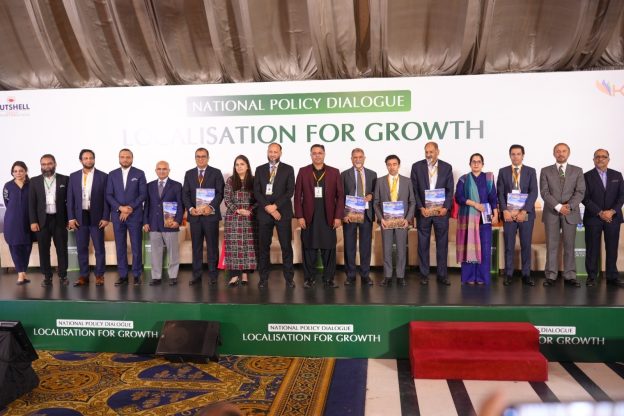K-Electric’s national policy dialogue on ‘Localization for Growth’ stripped of the reasons that hinder the localization of engineering products in Pakistan. Of them, some are related to the policies that we formulate, and others are attached to the concepts of localization. For example, Dr. Musadiq Malik, Minister of State for Petroleum believes localization and import substitution are adverse to each other and the practice of import substitution that is on in Pakistan for over a decade would never allow localization in Pakistan.In his view, we in Pakistan create a lazy industrial footprint by encouraging import substitution through imposing duties, the ban on imports, and issuing licenses to selected industrial groups.Resultantly, he claimed we had not been able to export any significant products which bring a popular name to Pakistan. He referred to this policy in the country’s automobile sector and asked if we have ever exported even a single product as yet. ‘In pursuance of this policy, we did nothing but made the vehicles expensive.’ He believed they would be proven insane if they pursue the same policy in the name of localization.Malik said prosperity comes through productivity which leads to localization and long-term productivity. He added innovation was a must that comes through academia-industry collaboration. Unless we put the system on for innovation, we cannot localize. He advised Pakistan’s industry whose chief executives were listening to him patiently that they should do something new that produces clusters.Referring to examples of Boston, and Berkley, clusters exist between Oxford and Cambridge and Pakistan’s Sialkot, he explained how clusters are created. Also, he talked about collaboration between industry, academia, and government which he said was part of the recipe for creating clusters. But he said this was not enough. We have to change our entire education system.He then focused on what the governments should do. The government has to create a level playing field that he believed is nonexistent in the country. He unveiled how the selected industry leaders continue receiving favors and how they have tilted the level playing field in the industrial sector of Pakistan. He said the government has to demonstrate its political will, then only Pakistan would be able to make a conducive atmosphere for localization and export of products, ensuring a level playing field that will create fierce healthy competition that would lead the country to prosperity.The moot was very well attended and had five significant MoUs signed between the local industry and K-Electric as the latter plans to invest Rs.484 billion in the next seven years and wants the local industry to replace products being imported for power.CEO K-Electric, Moonis Alvi said the utility bought the same products again and again for power generation, transmission, and distribution systems. Of the investment in the next seven years, 70 percent of the amount will be for the import of electrical and power products. We can make those products in Pakistan and we will do it with local industry, he said adding local industry has to be revived through government policies.
How Import Substitution is Averse to Localization?
on 22/06/2023








